The Rise of AI in Cloud Business Management
AI cloud business management tools are platforms that combine the scalability of cloud computing with the intelligence of AI algorithms to automate and optimize day-to-day business processes. These tools are not just “nice-to-have” anymore — they’re becoming the backbone of modern enterprises.
Why 2025 is the turning point?
- The AI + Cloud convergence has matured, meaning businesses no longer rely on fragmented software.
- Predictive power: AI now analyzes customer trends, financial risks, and operational bottlenecks before they occur.
- Automation-first approach: Companies are shifting from manual, reactive processes to AI-driven, proactive strategies.
Why Businesses Need AI-Powered Cloud Tools in 2025
Traditional business management tools often create more problems than they solve — manual data entry, department silos, delayed decision-making, and a lack of predictive insights.
AI-powered cloud tools change the game by offering:
- Automation of workflows – No more repetitive manual tasks; AI bots handle reporting, approvals, and scheduling.
- Predictive analytics – AI forecasts sales, cash flow, and customer churn with data-driven precision.
- Scalability & flexibility – Cloud ensures your business can scale resources instantly while AI adapts processes intelligently.
Key Features to Look for in AI Cloud Platforms
When choosing an AI-powered cloud platform in 2025, businesses must look beyond the buzzwords. The right solution should deliver practical automation, predictive insights, and enterprise-level security. Here’s what to prioritize:
1. Smart Automation & Task Management
AI streamlines repetitive tasks like approvals, reporting, and project tracking. Instead of manual updates, your system becomes an intelligent assistant that learns patterns and optimizes workflows.
2. Predictive Data Insights
Predictive analytics allows leaders to anticipate trends, risks, and customer behavior before issues arise. This moves businesses from reactive to proactive decision-making.
3. Collaboration Tools for the Remote-First Era
With hybrid and remote work dominating in 2025, platforms must have built-in collaboration features (shared dashboards, AI chatbots, cloud file management). This ensures teams can work across time zones efficiently.
4. Seamless Integration with ERP/CRM
An AI platform is only as powerful as the systems it connects with. Look for integration with ERP, CRM, HRM, and accounting platforms to create a single source of truth.
5. Security & Compliance (GDPR, HIPAA, SOC 2)
Security is non-negotiable. Businesses must ensure their platform meets compliance requirements like GDPR, HIPAA, and SOC 2. AI also strengthens fraud detection and data protection through anomaly detection.
Top AI Cloud Business Management Platform Tools (2025 List)
Instead of throwing a random list, let’s categorize tools by business function and then highlight exactly what AI does inside the tool. This way, readers instantly see the value.
1. AI for Project Management & Collaboration
Best for teams, task automation, and remote-first businesses
1. Monday.com AI

- AI Features: Smart task prioritization, workload balancing, and AI-generated project summaries.
- Why It Stands Out: Automates repetitive tasks and suggests the most efficient workflows.
- Pricing: Starts at $10/user/month.
- Best For: Startups and mid-size companies scaling project management.
- Monday.com
2. ClickUp AI
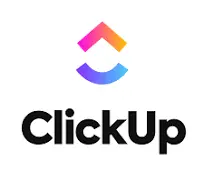
- AI Features: Instant project documentation, task breakdowns, automated reporting.
- Why It Stands Out: An AI writing assistant saves hours on creating SOPs and updates.
- Pricing: Free plan available; paid from $7/user/month.
- Best for: Teams needing all-in-one documents, tasks, and goals.
- ClickUp
3. Asana AI
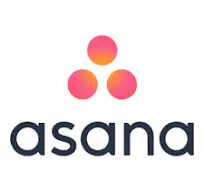
- AI Features: Predicts project risks, auto-assigns tasks, and recommends deadlines.
- Why It Stands Out: Its AI learns from past projects to improve future outcomes.
- Pricing: Free for basic; Business plan from $24.99/user/month.
- Best For: Enterprise teams with complex workflows.
- Asana
2. AI for CRM & Sales
Best for customer relationship management, sales predictions, and lead automation
4. Salesforce Einstein AI
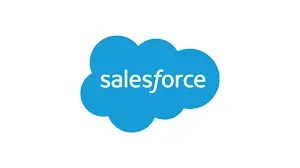
- AI Features: Predicts customer churn, recommends upselling opportunities, and automates email responses.
- Why It Stands Out: Enterprise-grade AI deeply integrated into CRM.
- Pricing: Add-on for Salesforce plans ($25–$300/user/month).
- Best For: Large enterprises with advanced CRM needs.
- Salesforce Einstein
5. Zoho CRM AI (Zia)
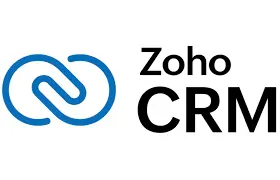
- AI Features: Sales predictions, email sentiment analysis, workflow automation.
- Why It Stands Out: Affordable yet powerful AI assistant for SMBs.
- Pricing: From $14/user/month.
- Best For: Small businesses needing a budget-friendly AI CRM.
- Zoho CRM
6. HubSpot AI

- AI Features: AI-driven lead scoring, email personalization, and predictive sales forecasting.
- Why It Stands Out: Built-in marketing + sales + service AI in one hub.
- Pricing: Free CRM; paid plans from $45/month.
- Best For: SMEs wanting marketing + sales alignment.
- HubSpot
3. AI for Finance & Accounting
Best for business owners managing money and compliance
7. Oracle NetSuite AI
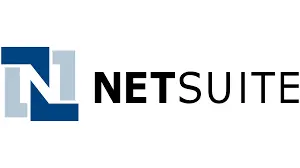
- AI Features: Predicts cash flow, automates expense categorization, and fraud detection.
- Why It Stands Out: Cloud ERP + AI for enterprise-level finance.
- Pricing: Custom pricing (enterprise solution).
- Best For: Large companies with global financial operations.
- NetSuite
8. QuickBooks AI

- AI Features: Auto-categorizes transactions, predicts tax liabilities, and detects anomalies.
- Why It Stands Out: Best for small businesses managing accounts easily.
- Pricing: From $30/month.
- Best For: Freelancers, startups, and SMEs.
- QuickBooks
4. AI for HR & People Management
Best for employee experience, recruitment, and workforce insights
9. Workday AI
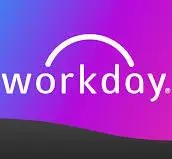
- AI Features: Predicts employee turnover, recommends career development paths, automates HR workflows.
- Why It Stands Out: Advanced AI for enterprise HR analytics.
- Pricing: Enterprise-level (custom quote).
- Best For: Corporations with large HR departments.
- Workday
10. BambooHR AI

- AI Features: Smart candidate screening, employee satisfaction analytics, automated onboarding.
- Why It Stands Out: Simple and effective for SMBs.
- Pricing: From $6.50/employee/month.
- Best For: Small–mid-sized companies.
- BambooHR
Comparison Table of Leading Tools
Here’s a comparison of AI cloud business tools 2025 that highlights their key strengths, pricing, and unique AI-powered benefits so businesses can make smarter decisions:
| Tool | Best For | AI Features | Pricing (2025) | Unique Benefit |
|---|---|---|---|---|
| ClickUp AI | Startups | Workflow automation, AI task prioritization | Free–$29/user/month | Simplifies project management with smart automation |
| Salesforce Einstein AI | Enterprises | Predictive analytics, customer churn detection | Custom pricing | Enterprise-grade CRM with advanced AI insights |
| Zoho CRM AI | SMEs | Lead scoring, AI-powered email assistant | $14–$52/user/month | Affordable CRM with built-in AI intelligence |
| HubSpot AI | Growing teams | Chatbots, sales forecasting, content AI | Free–$90/month | Strong inbound marketing automation with AI |
| Monday.com AI | Remote teams | AI project tracking, resource optimization | $9–$24/user/month | Best for collaboration in distributed teams |
| Oracle NetSuite AI | Finance-heavy businesses | Chatbots, sales forecasting, and content AI | Custom pricing | Financial accuracy and automation for enterprises |
| QuickBooks AI | SMEs & startups | Smart invoicing, AI cash-flow insights | $30–$200/month | User-friendly finance tool with AI-powered insights |
| Workday AI | HR & enterprises | Talent prediction, AI performance analytics | Custom pricing | People management with advanced workforce AI |
| BambooHR AI | Small HR teams | AI-driven employee engagement analysis | $5–$8/user/month | Lightweight HR solution with smart AI insights |
| Notion AI | Knowledge teams | AI writing assistant, task summaries | $10/month/user | AI in accounting, anomaly detection, and cash-flow prediction |
Industry-Specific Applications of AI Cloud Tools
When it comes to business management, a “one-size-fits-all” approach rarely works. That’s why AI-powered cloud platforms are now offering tailored solutions for different industries. Let’s see how they are reshaping major sectors in 2025:
1. Healthcare: Compliance + Secure AI Data Storage
Healthcare organizations handle sensitive patient data, and security is non-negotiable. AI cloud platforms ensure HIPAA and GDPR compliance while offering advanced features like:
- AI-driven diagnostics that analyze patient records and imaging for early detection.
- Predictive analytics to forecast patient admission rates.
- Automated compliance checks for strict healthcare regulations.
Example: Microsoft Cloud for Healthcare integrates AI models for patient care coordination while maintaining compliance.
2. E-commerce: Predictive Demand & Customer Personalization
For e-commerce, speed + personalization are everything. AI cloud tools are making it possible to:
- Predict shopping demand to optimize inventory.
- Deliver real-time personalized product recommendations.
- Automate customer service with AI chatbots and CRM workflows.
Example: Shopify Plus AI uses predictive analytics to reduce cart abandonment and optimize supply chain forecasting.
3. Finance: Fraud Detection + Smart Reporting
Finance businesses are early adopters of AI due to their need for accuracy and security. Cloud AI platforms provide:
- Fraud detection via anomaly detection models.
- Smart financial reporting and forecasting.
- Automated accounting workflows to cut manual errors.
Example: Oracle NetSuite AI integrates predictive reporting and fraud detection tools for enterprises.
4. Small Businesses: Affordable Automation + CRM
Small businesses often lack enterprise-level budgets, but cloud AI is making advanced tools affordable:
- Low-cost AI-powered CRM to manage customers.
- Automated invoicing, scheduling, and reporting.
- Collaboration features for remote teams.
Example: Zoho One AI offers an all-in-one platform with AI assistants that help small businesses streamline operations without huge costs.
Benefits & Limitations of AI Cloud Tools
When businesses adopt AI cloud business management platforms, they often see transformative results. But like any technology, there are both advantages and drawbacks. Presenting both sides not only gives readers a realistic perspective but also signals trustworthiness to Google.
Benefits of AI Cloud Tools
- Cost Savings – By automating manual tasks like reporting, invoice management, or CRM workflows, businesses save money on labor and reduce inefficiencies.
- Example: A small e-commerce store using Zoho AI CRM avoids hiring extra staff by automating customer segmentation.
- Example: A small e-commerce store using Zoho AI CRM avoids hiring extra staff by automating customer segmentation.
- Speed & Efficiency – AI instantly analyzes large datasets, provides insights, and executes workflows without delays.
- Better Insights – Predictive analytics and machine learning models forecast trends, customer churn, and future demand. This helps businesses stay ahead of competitors.
- Scalability – Cloud AI platforms adapt to growing businesses, whether you’re managing 100 or 100,000 customers.
Limitations of AI Cloud Tools
- High Cost for SMEs – While enterprise-level companies benefit quickly, small businesses may find subscription costs for platforms like Salesforce Einstein or Workday AI expensive.
- Data Privacy Risks – Storing sensitive customer or healthcare data in the cloud raises concerns about compliance with GDPR, HIPAA, or SOC 2.
- Dependency on Providers – Companies relying too heavily on cloud vendors risk service outages or vendor lock-in.
Future Trends in AI Cloud Business Management (Beyond 2025)
As we step past 2025, the AI + cloud ecosystem will continue to evolve rapidly. Here are the top emerging trends that businesses should prepare for:
1. Rise of Generative AI Assistants for Business
Instead of generic chatbots, expect intelligent AI agents that handle end-to-end workflows. For example, a generative AI could create financial forecasts, draft emails, and even suggest hiring decisions.
2. Hyper-Personalized AI Dashboards
AI-powered cloud dashboards will no longer be one-size-fits-all. Instead, executives, managers, and staff will each get tailored views with recommendations suited to their role.
3. AI + Edge Computing Integration
Businesses will combine edge devices (IoT) with cloud AI for real-time decision-making. Example: In healthcare, AI edge devices can monitor patients in real time while syncing with cloud dashboards.
4. Ethical AI & Responsible Automation
Governments and enterprises will prioritize ethical AI adoption. Expect stricter rules around bias-free algorithms, explainable AI, and responsible automation.
How to Choose the Right AI Cloud Platform for Your Business
Selecting the right AI cloud business management platform is one of the most critical decisions for companies in 2025. With so many tools on the market, rushing into a choice can lead to wasted investment and integration headaches. Instead, businesses should take a strategic approach.
1. Consider Budget & Team Size
- Small businesses may benefit from AI cloud platforms for small businesses that provide affordable automation, CRM, and task management.
- Enterprises, on the other hand, need enterprise AI management tools with scalability, advanced compliance, and predictive analytics.
2. Industry Compliance & Regulations
- Healthcare companies should ensure HIPAA compliance.
- Finance businesses should focus on SOC 2-certified and GDPR-ready solutions.
- E-commerce companies need AI tools with customer personalization and real-time data analytics.
3. Scalability & Integrations
- A strong AI platform must grow with your business. Look for integrations with ERP, CRM, HRMS, and accounting software to avoid siloed systems.
Pro Tip: Start small. Test one or two AI-driven workflows. Once you see ROI in automation or predictive analytics, scale up gradually. This approach reduces risk while maximizing returns.
Conclusion: Smarter Businesses Run on AI + Cloud
The rise of AI cloud business management platform tools is reshaping how companies operate in 2025. From automation and predictive analytics to secure compliance and cost efficiency, these platforms have become the backbone of digital-first businesses.
By carefully choosing the right AI cloud platform—based on budget, scalability, and compliance—companies can unlock smarter decision-making, faster execution, and long-term growth.
Stay tuned for more updates on AI-driven business tools shaping the future of work. And visit our website NextgenAI.
FAQs
Q1: What is an AI cloud business management platform?
A: It’s a software solution that combines artificial intelligence with cloud computing to automate workflows, analyze data, and manage core business functions securely.
Q2: Which is the best AI cloud tool for small businesses in 2025?
A: Tools offering affordable automation and CRM—like Zoho AI, HubSpot with AI integration, or Odoo cloud AI—are ideal for small businesses.
Q3: How does AI improve workflow automation in the cloud?
A: AI reduces manual tasks by automating workflows, predicting outcomes with analytics, and improving team collaboration through smart suggestions.
Q4: Are AI cloud tools secure for sensitive business data?
A: Yes, leading platforms come with GDPR, HIPAA, and SOC 2 compliance, ensuring strong encryption and secure data storage.
Q5: What future trends will impact AI cloud management platforms?
A: Expect generative AI assistants, hyper-personalized dashboards, AI + edge computing, and ethical automation practices to define the next wave of cloud business management.
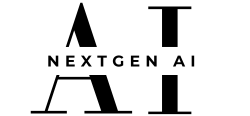
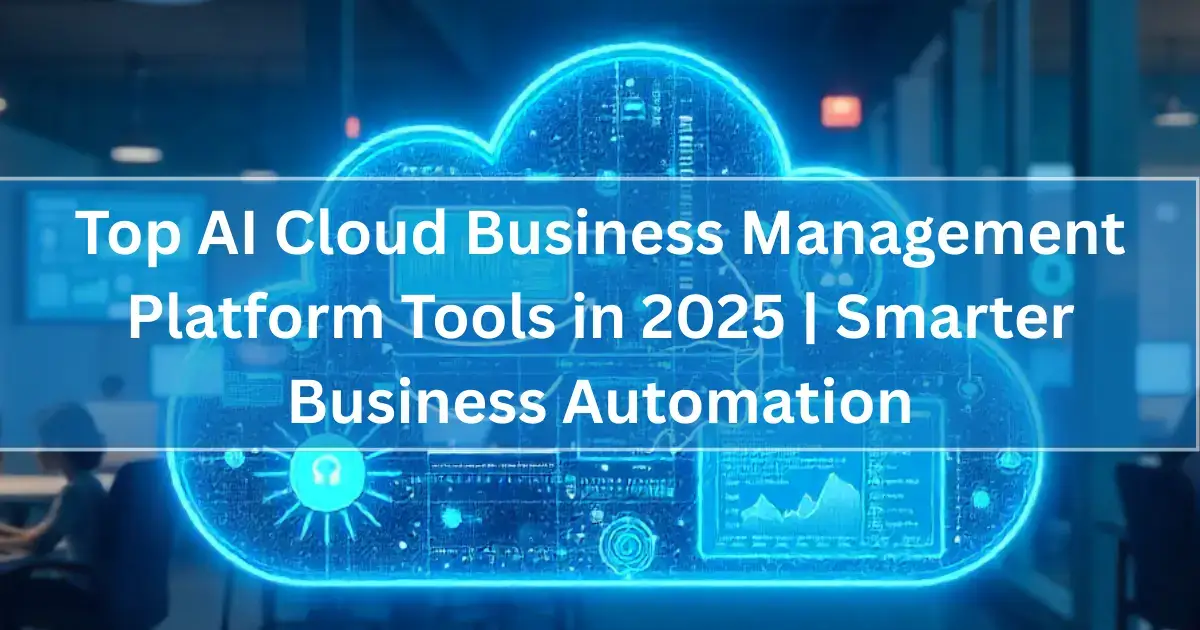


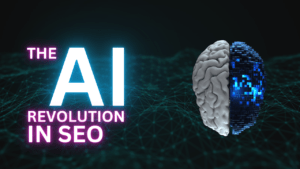
Nice blog here Also your site loads up fast What host are you using Can I get your affiliate link to your host I wish my web site loaded up as quickly as yours lol